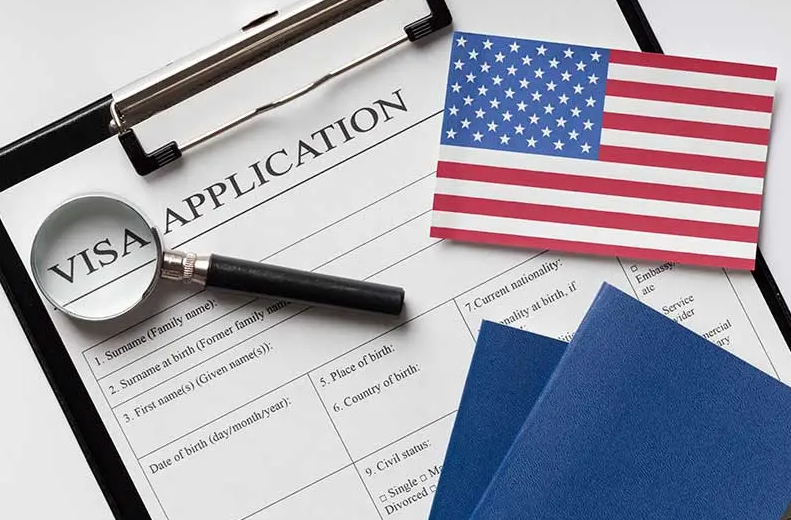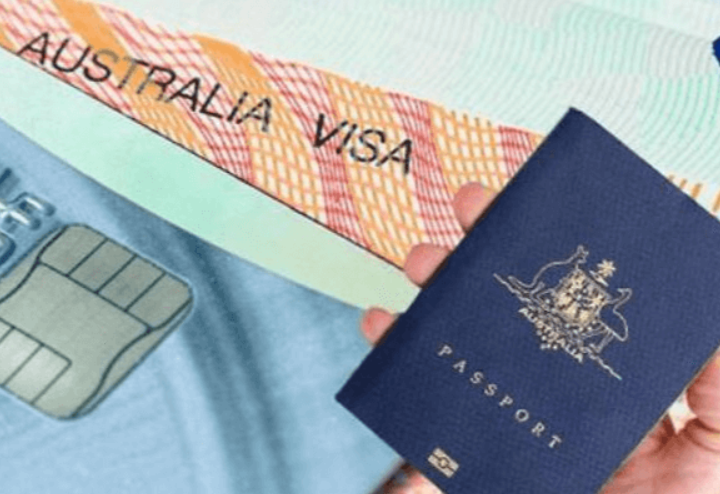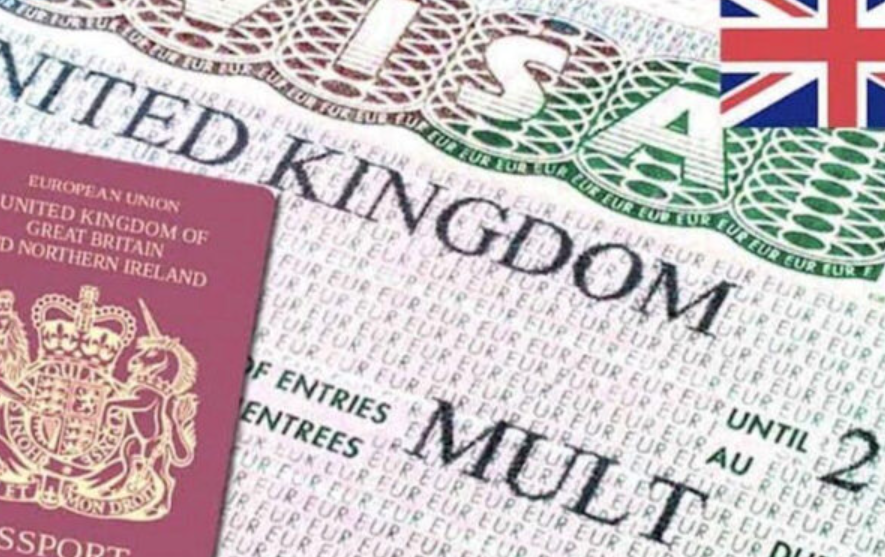Imagine living and working in the heart of Europe, enjoying the Netherlands’ vibrant culture and high quality of life. You might be able to make that dream a reality through remote jobs in the Netherlands with visa sponsorship opportunities.
In this comprehensive guide, we’ll dive deep into how you can find these coveted positions and navigate the visa process. This isn’t just about finding a job you can do from your laptop; it’s about unlocking a gateway to a life enriched by Dutch values, a career fueled by innovation, and a personal journey marked by cultural immersion. While the traditional image of a sponsored job might conjure up visions of corporate offices and rigid structures, the digital age has reshaped the landscape.
Companies, particularly in the thriving tech and creative sectors, are increasingly recognizing the value of global talent and the flexibility of remote work. This shift has opened up unprecedented avenues for skilled individuals to contribute their expertise from the heart of the Netherlands, without being confined to a physical office.
Understanding the Visa Sponsorship Process for Remote Jobs in the Netherlands
Securing a remote job in the Netherlands is just the first step. The critical hurdle lies in navigating the Dutch visa sponsorship process. Unlike some countries with dedicated digital nomad visas, the Netherlands primarily relies on its existing immigration framework, adapted for skilled workers and entrepreneurs.
This means that securing remote jobs in the Netherlands with visa sponsorship opportunities involves understanding the nuances of these established channels and how they can accommodate remote work arrangements.
-
The Role of the IND (Immigratie- en Naturalisatiedienst):
The IND is the cornerstone of the Dutch immigration system. Think of them as the gatekeepers. All visa applications, sponsorship approvals, and residency permits are processed by this agency. Understanding their requirements and procedures is paramount. Their website, although comprehensive, can be intricate, so meticulous research is essential.
-
Employer Sponsorship: The Highly Skilled Migrant Visa (Kennismigrant)
This is the most common pathway for professionals seeking remote jobs in the Netherlands with visa sponsorship opportunities. Here’s a breakdown:
- Recognized Sponsorship: The employer must be a “recognized sponsor” with the IND. This signifies that they meet specific criteria, including financial stability and adherence to immigration regulations. Smaller startups or newly established companies might not have this status.
- Salary Requirements: The IND sets minimum salary thresholds, which vary based on age and experience. These thresholds are designed to ensure that sponsored workers contribute significantly to the Dutch economy.
- Job Relevance: The job must align with the employee’s qualifications and experience. The IND scrutinizes job descriptions to ensure they require specialized skills.
- Application Process: The employer typically initiates the visa application process, submitting documentation to the IND. The employee provides supporting documents, such as educational certificates and passport copies.
- Remote Work Considerations: While the “Highly Skilled Migrant” visa is designed for on-site employment, it can accommodate remote work arrangements within the Netherlands. The key is to demonstrate that the job requires the employee to be based in the Netherlands and that the employer has a legitimate business presence in the country. The contracts and official documentation must reflect this.
- 30% Ruling: A tax advantage may be available for highly skilled migrants. It allows qualifying employees to receive 30% of their gross salary tax-free for a maximum of 5 years.
-
Self-Employment Visa (Verblijfsvergunning Zelfstandige):
If you’re a freelancer or entrepreneur seeking remote jobs in the Netherlands with visa sponsorship opportunities (in the sense that you are sponsoring yourself), this visa is your avenue.
- Business Plan: A comprehensive business plan is crucial. It should demonstrate the viability of your business and its contribution to the Dutch economy.
- Financial Resources: You must prove that you have sufficient financial resources to support yourself during your stay.
- Registration with the KvK (Kamer van Koophandel): Registration with the Dutch Chamber of Commerce is mandatory.
- Professional Liability Insurance: Proof of professional liability insurance is typically required.
- Remote Work Considerations: The IND will assess whether your remote work activities contribute to the Dutch economy. If you’re providing services to clients outside the Netherlands, you must demonstrate a clear connection to the Dutch market.
-
The DAFT (Dutch American Friendship Treaty) Visa:
If you’re a US citizen, the DAFT visa offers a simplified route to self-employment in the Netherlands.
- Investment: You must invest a “substantial amount” in your business. While there’s no fixed amount, the IND assesses the investment’s relevance and contribution.
- Business Registration: Registration with the KvK is required.
- Simplified Process: Compared to the self-employment visa, the DAFT visa has fewer stringent requirements.
-
EU Blue Card: High Earners from Outside the EU
For highly qualified individuals from outside the EU, the EU Blue Card is a potential option.
- High Salary: This visa requires a higher salary than the Highly Skilled Migrant visa.
- Higher Education: A recognized higher education degree is mandatory.
- Employment Contract: A valid employment contract with a Dutch employer is required.
-
Key Considerations for Remote Workers:
- Proof of Dutch Connection: Even with a remote job, you must demonstrate a genuine connection to the Netherlands. This could include a Dutch address, local clients, or involvement in Dutch professional networks.
- Tax Implications: Understand the tax implications of working remotely in the Netherlands. Consult with a tax advisor specializing in international taxation.
- Social Security: Determine your social security obligations.
- Contractual Clarity: Ensure your employment contract clearly outlines your remote work arrangement and your employer’s obligations regarding visa sponsorship.
-
Common Pitfalls and How to Avoid Them:
- Incomplete Applications: Ensure all required documents are submitted and accurately translated.
- Misinterpreting IND Requirements: Thoroughly research the IND’s guidelines and seek clarification if needed.
- Underestimating Processing Times: Visa processing can take several weeks or even months. Apply well in advance.
- Ignoring Local Regulations: Familiarize yourself with Dutch labor laws and regulations.
Securing remote jobs in the Netherlands with visa sponsorship opportunities requires a meticulous approach, a deep understanding of the Dutch immigration system, and a commitment to navigating the complexities of the visa process.
By focusing on the correct visa categories, ensuring all documentation is accurate, and understanding the IND’s requirements, you can significantly increase your chances of success.
Why Consider Visa Sponsorship in the Netherlands?
The Netherlands, a small nation with a giant global footprint, consistently ranks high on lists of the best places to live and work. But why specifically pursue remote jobs in the Netherlands with visa sponsorship opportunities? The allure extends far beyond picturesque landscapes and charming canals. Let’s delve into the multifaceted reasons that make the Netherlands a prime destination for international professionals:
-
A Tech-Forward Hub with Global Impact:
- Innovation Ecosystem: The Netherlands is a breeding ground for innovation, particularly in sectors like fintech, AI, sustainable technology, and life sciences. Companies here are driven by cutting-edge research and development, providing a stimulating environment for tech professionals.
- Startup Culture: The country fosters a vibrant startup culture, attracting entrepreneurs and investors from around the world. This dynamic environment offers opportunities for growth and collaboration.
- Strategic Location: Its central location within Europe makes it a gateway to the continent. The Netherlands is a hub for international trade and logistics, offering access to a vast market.
-
Exceptional Quality of Life and Work-Life Balance:
- Emphasis on Well-being: Dutch companies prioritize employee well-being, promoting a healthy work-life balance. Flexible work arrangements, generous vacation policies, and a culture of respect contribute to a positive work environment.
- Social Security and Benefits: The Netherlands boasts a comprehensive social security system, providing access to healthcare, education, and other essential services.
- Safe and Inclusive Society: The Netherlands is known for its tolerance, diversity, and progressive social policies. It’s a safe and welcoming country for people from all backgrounds.
- Excellent Infrastructure: The country’s efficient public transportation, high-speed internet, and modern amenities make daily life convenient and comfortable.
-
English Proficiency and International Environment:
- Seamless Integration: The high level of English proficiency among the Dutch population makes integration easy for international professionals.
- Multicultural Society: The Netherlands is a melting pot of cultures, fostering a diverse and inclusive environment.
- Global Networking: Working in the Netherlands provides opportunities to connect with professionals from around the world, expanding your network and broadening your horizons.
-
Career Advancement and Professional Growth:
- High Demand for Skilled Workers: The Netherlands faces a shortage of skilled workers in various sectors, creating opportunities for international talent.
- Competitive Salaries: The country offers competitive salaries and benefits packages, reflecting the value placed on skilled professionals.
- Opportunities for Innovation: The Netherlands’ focus on innovation provides opportunities to work on challenging and impactful projects.
- Professional Development: Many companies invest in employee training and development, supporting career advancement.
-
Long-Term Stability and Security:
- Strong Economy: The Netherlands has a stable and robust economy, providing job security and long-term career prospects.
- Residency and Citizenship Pathways: The Dutch government offers pathways to permanent residency and citizenship, allowing you to build a long-term future in the country.
- Legal Protection: Employees in the Netherlands are protected by strong labor laws, ensuring fair treatment and safe working conditions.
-
Cultural Enrichment and Lifestyle:
- Rich Cultural Heritage: The Netherlands boasts a rich cultural heritage, with world-class museums, historical landmarks, and vibrant arts and culture scenes.
- Outdoor Activities: The country’s flat landscape and extensive network of cycling paths make it ideal for outdoor activities.
- Travel Opportunities: Its central location provides easy access to other European countries, allowing for weekend getaways and travel adventures.
- High Quality of Life: The Netherlands consistently ranks high in quality-of-life surveys, offering a safe, clean, and enjoyable living environment.
Pursuing remote jobs in the Netherlands with visa sponsorship opportunities is an investment in your career and your life. It’s an opportunity to join a dynamic and forward-thinking society, embrace a healthy work-life balance, and build a fulfilling future in a country that values innovation, diversity, and well-being.
Eligibility Requirements for Securing Remote Jobs in the Netherlands Visa Sponsorship Opportunities
Landing remote jobs in the Netherlands with visa sponsorship opportunities isn’t just about finding the right job; it’s about meeting specific eligibility criteria that align with Dutch immigration regulations. These requirements are designed to ensure that sponsored workers contribute to the Dutch economy and integrate successfully into society. Let’s break down the key eligibility factors:
-
Educational Qualifications and Professional Experience:
- Higher Education: For the Highly Skilled Migrant visa, a relevant bachelor’s or master’s degree is often a prerequisite. The IND meticulously evaluates educational credentials to ensure they meet Dutch standards.
- Specialized Skills: Employers seeking visa sponsorship typically require candidates with specialized skills in high-demand fields like IT, engineering, finance, and science.
- Proven Track Record: Demonstrating a solid track record of professional experience is crucial. This includes providing detailed information about your previous roles, responsibilities, and achievements.
- Certifications and Training: Relevant certifications and professional training can significantly strengthen your application.
-
Salary Requirements:
- Minimum Salary Thresholds: The IND sets minimum salary thresholds for the Highly Skilled Migrant visa, which vary based on age and experience. These thresholds are adjusted periodically, so it’s essential to stay updated on the latest requirements.
- Market-Rate Salaries: Employers are expected to offer salaries that are competitive with the Dutch market rate for the specific role.
- Proof of Salary: Employers must provide documentation proving that they will pay the required salary.
-
Employer Sponsorship Requirements:
- Recognized Sponsor Status: The employer must be a “recognized sponsor” with the IND. This signifies that they meet specific financial and administrative criteria.
- Genuine Job Offer: The job offer must be genuine and align with the employer’s business activities.
- Demonstrated Need for Skilled Worker: The employer must demonstrate that they cannot find a suitable candidate within the Dutch or EU labor market.
- Compliance with Labor Laws: Employers must adhere to Dutch labor laws and regulations.
-
Language Proficiency:
- English Proficiency: While Dutch is the official language, English is widely spoken in the Netherlands, particularly in the business world. However, demonstrating English proficiency is often required, especially for roles involving communication with international clients or colleagues.
- Dutch Language Skills: While not always mandatory, demonstrating a willingness to learn Dutch or possessing basic Dutch language skills can enhance your application and improve your integration into Dutch society.
-
Financial Stability:
- Proof of Sufficient Funds: Depending on the visa type, you may need to demonstrate that you have sufficient financial resources to support yourself during your stay in the Netherlands.
- Financial Guarantees: In some cases, employers may be required to provide financial guarantees.
-
Health and Character Requirements:
- Health Insurance: Health insurance is mandatory in the Netherlands. You will need to obtain Dutch health insurance or provide proof of adequate international health insurance.
- Clean Criminal Record: You will typically need to provide a certificate of good conduct or a similar document demonstrating a clean criminal record.
-
Specific Requirements for Self-Employment Visas:
- Viable Business Plan: A detailed and compelling business plan is essential.
- Financial Investment: Demonstrating a significant financial investment in your business is often required.
- Contribution to the Dutch Economy: Your business must demonstrate a clear contribution to the Dutch economy.
- Registration with the KvK: Registration with the Dutch Chamber of Commerce is mandatory.
-
Remote Work Specific Considerations:
- Dutch Connection: Even for remote roles, showing a connection to the Netherlands is important. This could be a Dutch address, networking within the Netherlands, or clients based in the Netherlands.
- Clear Contractual Agreements: The contract must clearly state the remote work arrangement and location of work, and that the employer is willing to sponsor the employee to be in the Netherlands.
- Tax implications: The employee and employer must understand the tax implications of remote work within the Netherlands.
By understanding and meeting these eligibility requirements, you can significantly increase your chances of securing remote jobs in the Netherlands with visa sponsorship opportunities and embarking on a successful career in this vibrant and dynamic country.
Remote Jobs in the Netherlands Visa Sponsorship Opportunities
The concept of remote jobs in the Netherlands with visa sponsorship opportunities is more than a dream; it’s a tangible reality for skilled professionals across various industries. While the “remote” aspect adds a layer of complexity to traditional visa sponsorships, it also opens doors to unique positions that leverage global talent while maintaining a strong Dutch connection. Let’s delve into specific job categories and how they align with visa sponsorship possibilities:
-
Senior Software Engineer (Full Stack)
Average Salary: €60,000 – €90,000 per year
Senior Full Stack Engineers are in high demand in the Netherlands’ thriving tech sector. These professionals are responsible for developing and maintaining both front-end and back-end applications. Companies seek individuals with expertise in languages like JavaScript, Python, or Java, and frameworks like React, Angular, or Node.js. Remote positions often involve contributing to complex projects, collaborating with international teams, and implementing innovative solutions. Visa sponsorship is common due to the persistent shortage of qualified engineers.
-
Data Scientist
Average Salary: €55,000 – €85,000 per year
Data scientists play a crucial role in extracting insights from data and driving business decisions. In the Netherlands, they work across various industries, including finance, healthcare, and e-commerce. Remote roles often involve developing machine learning models, conducting statistical analysis, and visualizing data. Companies value candidates with strong programming skills (Python, R), knowledge of statistical techniques, and experience with data visualization tools.
-
Cybersecurity Analyst
Average Salary: €50,000 – €80,000 per year
With the increasing threat of cyberattacks, cybersecurity analysts are essential for protecting sensitive data and systems. Remote positions involve monitoring network traffic, identifying vulnerabilities, and responding to security incidents. Companies seek candidates with certifications like CISSP or CISM, and experience with security tools and frameworks. Due to the global shortage of cybersecurity professionals, visa sponsorship is frequently offered.
-
UI/UX Designer
Average Salary: €45,000 – €70,000 per year
UI/UX designers are responsible for creating intuitive and user-friendly interfaces for web and mobile applications. In the Netherlands, they work closely with developers and product managers to ensure a seamless user experience. Remote positions often involve conducting user research, creating wireframes and prototypes, and designing visually appealing interfaces. Companies value candidates with strong design portfolios and experience with tools like Figma or Adobe XD.
-
Cloud Solutions Architect
Average Salary: €70,000 – €100,000+ per year
Cloud solutions architects design and implement cloud-based infrastructure and applications. With the increasing adoption of cloud technologies, these professionals are in high demand in the Netherlands. Remote roles involve assessing client needs, designing scalable solutions, and managing cloud deployments. Companies seek candidates with certifications from AWS, Azure, or Google Cloud, and experience with cloud computing platforms.
-
Digital Marketing Manager
Average Salary: €40,000 – €65,000 per year
Digital marketing managers are responsible for developing and executing online marketing strategies to promote products and services. Remote positions involve managing social media campaigns, optimizing website content, and analyzing marketing data. Companies value candidates with experience in SEO, SEM, and social media marketing. Due to the international nature of digital marketing, visa sponsorship can be available.
-
Product Manager (Tech)
Average Salary: €60,000 – €90,000 per year
Product managers define the vision and strategy for technology products. Remote roles involve gathering user feedback, prioritizing features, and working with development teams to bring products to market. Companies seek candidates with strong technical backgrounds, excellent communication skills, and experience in agile methodologies. Because of the high need for experienced product managers, visa sponsorship is possible.
-
Business Intelligence Analyst
Average Salary: €50,000 – €75,000 per year
Business intelligence analysts analyze data to provide insights that support business decisions. Remote positions involve creating reports and dashboards, identifying trends, and presenting findings to stakeholders. Companies value candidates with strong analytical skills, experience with data visualization tools, and knowledge of SQL.
-
Remote Technical Writer
Average Salary: €40,000 – €60,000 per year
Technical writers create clear and concise documentation for software and hardware products. Remote positions involve writing user manuals, API documentation, and online help content. Companies seek candidates with strong writing skills, technical knowledge, and experience with documentation tools.
-
Remote Sales Engineer
Average Salary: €55,000 – €85,000 per year
Sales engineers provide technical expertise to support sales teams. Remote roles involve demonstrating products, answering technical questions, and developing proposals. Companies value candidates with strong technical backgrounds, excellent communication skills, and experience in sales.
-
AI/Machine Learning Engineer
Average Salary: €65,000 – €95,000+ per year
AI/Machine Learning engineers design and build AI-powered systems. Remote positions involve developing machine learning models, working with large datasets, and implementing AI algorithms. Companies seek candidates with strong programming skills (Python), knowledge of machine learning frameworks (TensorFlow, PyTorch), and experience with data science tools. The demand for these highly skilled workers makes visa sponsorship a common practice.
By focusing on these specific job categories and understanding the key considerations, you can increase your chances of securing remote jobs in the Netherlands with visa sponsorship opportunities and embark on a fulfilling career in this dynamic country.
The Future of Remote Work in the Netherlands
The trend of remote jobs in the Netherlands with visa sponsorship opportunities is likely to continue as companies embrace remote work and seek global talent. The landscape of work is undergoing a seismic shift, and the Netherlands is poised to be a key player in this transformation. The future of remote work in the Netherlands appears exceptionally bright, driven by several converging factors. As technology advances and the world becomes more interconnected, the possibilities for working remotely from the Netherlands will only expand.
Conclusion
Finding remote jobs in the Netherlands with visa sponsorship opportunities requires dedication and perseverance, but the rewards are immense. By targeting the right companies, networking effectively, and navigating the visa process diligently, you can unlock your Dutch dream. Start your search today and embark on an exciting chapter of your career in the beautiful Netherlands.






